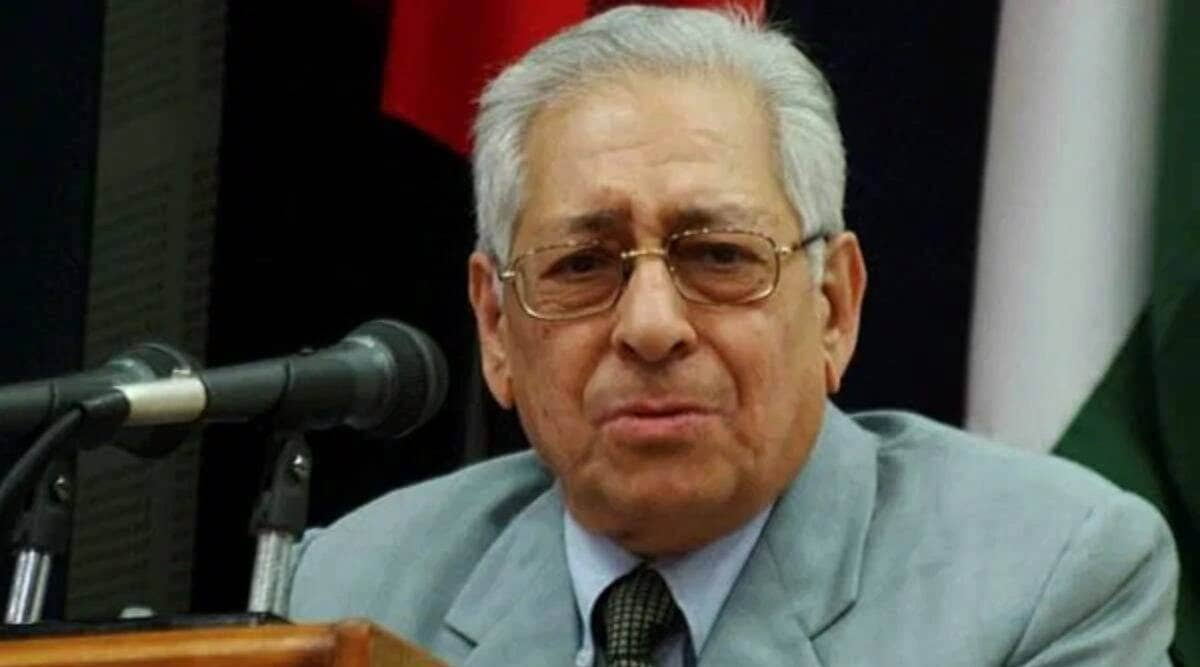 Soli Sorabjee
Soli Sorabjee India mourns the loss of one of her great sons, former attorney general of India and Padma Vibhushan Soli Sorabjee. Born to Jehangir and Khorshed Sorabjee on March 9, 1930, Sorabjee was a first-generation lawyer, and the first member of his immediate family to attend university. At the age of 12, he left his Gujarati medium school to join St. Xavier’s school in Bombay, where he excelled in subjects like English and French. Taught by Jesuit priests, Sorabjee, a Parsi Zoroastrian, developed a deep fondness for Roman Catholicism. His friends would often tease him that his initials stood not for Soli Jehangir but for “Society of Jesus”.
Two episodes in his youth had a vast impact on his life. The first was on January 30 1948, coincidentally the day Mahatma Gandhi was assassinated. Sorabjee was riding a motorcycle on Marine Drive when he got into an accident in which his left leg was badly injured. The leg never fully healed and never again was Sorabjee able to run or sprint. The second defining episode was the death of his father in 1949, when Sorabjee was only 19. He was summoned to the office of the executor of his father’s will and treated quite poorly. Sorabjee decided he wanted to pursue a profession in which he would be his own master.
It was for this reason that in 1950, just as a new Constitution came into force in India, Sorabjee found himself studying law at Government Law College in Bombay. Upon graduating, Sorabjee joined Khursetjee Bhabha as a junior. Bhabha’s chamber, called “Chamber No. 1”, was packed with brilliant lawyers, including Nani Palkhivala and H M Seervai, such that there was a dearth of space for juniors. Palkhivala used to meet his clients in his Dodge car parked outside the premises. Sorabjee had to promise Khursetjee that he would sit in the High Court library, instead of occupying space in the chamber.
In 1968, Sorabjee was offered a judgeship of the Bombay High Court by Chief Justice S P Kotval, which he refused because he had to look after one of his children who had special needs. A few years later, in 1971-72, he was designated a senior advocate by the Bombay High Court. It was as a senior advocate that Sorabjee traveled to Delhi for perhaps the most important case of his life up until that point, Kesavananda Bharati v. State of Kerala, where the Supreme Court eventually held that the Constitution has a basic structure which cannot be altered or amended by Parliament. Palkhivala, whom Sorabjee was assisting in that case, had a suite at the Oberoi which used to be packed with the papers of the case. On Fridays, Palkhivala would fly out of Delhi and Sorabjee would then move into Palkhivala’s suite to continue working on the case.
A strong proponent of free speech, Sorabjee appeared in a number of press censorship cases during the Emergency. Among these was the “Freedom First” case (Binod Rao v. M R Masani). The government had passed an order prohibiting a monthly journal called Freedom First, edited by Minoo Masani (a politician and member of the Constituent Assembly) from publishing 11 articles critical of the government. Sorabjee appeared for Masani without charging any fees. At the end of his arguments, Justice Madon, who delivered the judgment of the Bombay High Court, held that despite the imposition of the Emergency, though the right to free speech and expression had been suspended by the government, “the rule of law continues to prevail” and the Emergency did not “confer upon the executive the power to take illegal or arbitrary action to the prejudice of citizens.” During the Emergency, Sorabjee was working on the manuscript of his first book, The Law of Press Censorship in India. Afraid that the government might raid his home and confiscate the manuscript, he kept the papers of his book with his aunt in her home nearby.
In the past several decades, hardly a single landmark constitutional case was decided by the Supreme Court which did not have Sorabjee appearing in it. His life, however, was about much more than the law. His closest friends, Minoo Davar, Yusuf Karmali, and Suresh Mirajkar, were non-lawyers. He was an exceptionally talented mimic, and would imitate Seervai, Hotchand Advani and even Justice V D Tulzapurkar (whom he was very fond of). He loved jazz, supporting many jazz musicians in his lifetime. In his school days, he was deeply fond of horse-racing. The highlight of his adolescent life was when he was permitted to take his father’s horse, Yankee Doodle, to the paddock after it had won a race. He enjoyed reading English literature in the court holidays — Charles Dickens’s Pickwick Papers and Shakespeare’s sonnets were among his favorites.
Whether he was appearing for a private client as a junior lawyer at the Bombay bar or arguing a case for the central government as the attorney general of India in the SC, Sorabjee believed that he was not the mouthpiece of his clients. Though he took their instructions into account, he never considered himself to be bound by them. This enabled him to speak his mind in court, to take an independent view, regardless of what the client or solicitor wanted him to argue. It was for this reason, among many others, that he was highly respected by the court.
The poet Percy Shelley once wrote: “Music, when soft voices die, Vibrates in the memory”. Sorabjee’s fiercely independent voice will forever resonate in the corridors of our courts and in public life.
The writer is an advocate at the Bombay High Court
- The Indian Express website has been rated GREEN for its credibility and trustworthiness by Newsguard, a global service that rates news sources for their journalistic standards.

